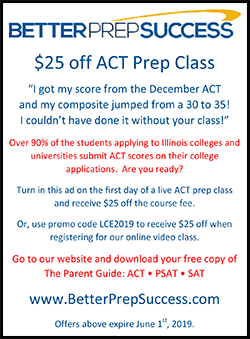|
 Mrs. Irwin grew up in Lincoln and taught sixth
grade and kindergarten in Lincoln School District 27. She started
her administrative career as a principal at Central Elementary
before coming to Chester East Lincoln. She served CEL as the
principal for one year before becoming the superintendent. Mrs. Irwin grew up in Lincoln and taught sixth
grade and kindergarten in Lincoln School District 27. She started
her administrative career as a principal at Central Elementary
before coming to Chester East Lincoln. She served CEL as the
principal for one year before becoming the superintendent.
Mrs. Aper grew up in Lincoln as well. She also taught in Lincoln
District 27 for a number of years before she left to work for
Tri-County Special Education Association as a Special Education
Administrator. Chester East Lincoln was one of her districts while
working with TCSEA. Last year she was hired by Chester East Lincoln
as a principal and special education administrator.
CEL provides education for approximately 300 students in grades
pre-kindergarten through eighth grade. The teachers and staff
educate students using a workshop model in reading and writing by
providing whole class and small group instruction. This school year
the district has also begun working with a math consultant to map
out the curriculum and make sure all standards are covered. In
addition, teachers are learning different methods to teach math that
is more engaging and provides a deeper level of understanding of the
processes needed to solve problems.

Mrs. Irwin and Mrs. Aper agree that school is not the same now that
it was years ago. Educating students has changed. Students are now
expected to know the reasoning behind their work.
The administrators also agree that educating students cannot take
place without strong classroom management and building relationships
with students. Teachers are challenged at the beginning of the year
to learn one unique thing about each of their students to make a
personal connection.

Relationships are also important through the
implementation of using 'Restorative Practice.'
Last summer Mrs. Aper along with four teachers attended a week-long
training in Bloomington that was provided through a grant from the
Regional Office of Education. This training provided the ability for
Mrs. Aper and the team to train others. By the end of the week, a
plan had been developed to train the remaining teachers and staff at
CEL.
Restorative Practice is the process of taking something that is
broken due to mistakes (or something else), and restoring them or
making them “right.”

Mrs. Aper noted, “using Restorative Practice provides those involved
a voice and allows all parties to be heard.” She also noted
Restorative Practice has not only been used when there is a conflict
between students but also conflicts with teachers as well as
parents.
Through the Restorative Practice process, those
involved learn how their actions have impacted others and made
others feel. “We also discuss how actions have impacted the
teachers, ourselves as administrators, and the parents,” Mrs. Irwin
went on to say.
[to top of second column] |
 By the end of the Restorative Practice circle or
conversation, those involved are expected to make things right. This
generally involves an apology that acknowledges the mistake, and
other times a consequence is given as well.
Mrs. Irwin explained, “student discipline isn’t one-size-fits-all.
There are many factors to take into consideration, and it isn’t
always easy.”
In using Restorative Practice, Mrs. Irwin and Mrs. Aper noted that
office referrals are down this year compared to the previous years.
“Students are becoming problem solvers, both in their academic
career and in figuring out relationships,” explained Mrs. Aper.
Mrs. Irwin followed up, “our students are the next generation of
citizens that will live in our community. We want to lay the
foundation and teach students to take ownership of their actions,
accept responsibility, and make it right, which sometimes includes
an apologizing depending on the situation. We believe we are laying
the groundwork by providing a safe place to make those mistakes and
learn from them.”
Teachers have taken a different approach to some of the language
they use in the classroom that is based on Restorative Practices,
allowing students to become more thoughtful of their actions. Mrs.
Aper explained, “adding emotions to a statement can increase the
impact of the words being spoken.” Mrs. Aper gave an example: a
typical response would be “stop teasing Sally.” An effective
statement would be “it makes me feel uncomfortable when I hear you
teasing Sally.” Most students don’t want to disappoint their
teachers, therefore hearing a teacher is feeling unhappy tends to
change behavior.


Mrs. Irwin concluded the conversation by saying, “we
want to create an environment that is conducive for learning where
all students feel safe, welcomed, and loved. Restorative Practice
has given us the tools to build positive and appropriate
relationships with students. Instead of making a student feel shame
or humiliation about making a mistake, our goal is to provide a safe
and loving environment that enables them to become confident, kind,
and respectful individuals.”
|
Read all the articles in our
new
2019 Education Magazine
Title
CLICK ON TITLES TO GO TO PAGES |
Page |
|
Lessons
for all - How to be good people |
4 |
| LJHS
new Eaton STEM Lab sparks learning |
9 |
|
Hands-n learning in LJHS STEM lab |
11 |
|
Cheerleading encourages discipline and high
academic standards |
16 |
|
Outstanding educators produce students who
succeed at life |
19 |
|
Current status report for West Lincoln Broadwell
School |
23 |
|
Tutoring can minimize anxiety and result in
stronger grades |
24 |
| ACT or
SAT: What is a college bound high school
student to do? |
28 |
| Logan
County Education Coalition assists in finding
post secondary education opportunities and funds |
31 |
|
Lincoln Colleges moves forward by looking to its
past |
35 |
|
|